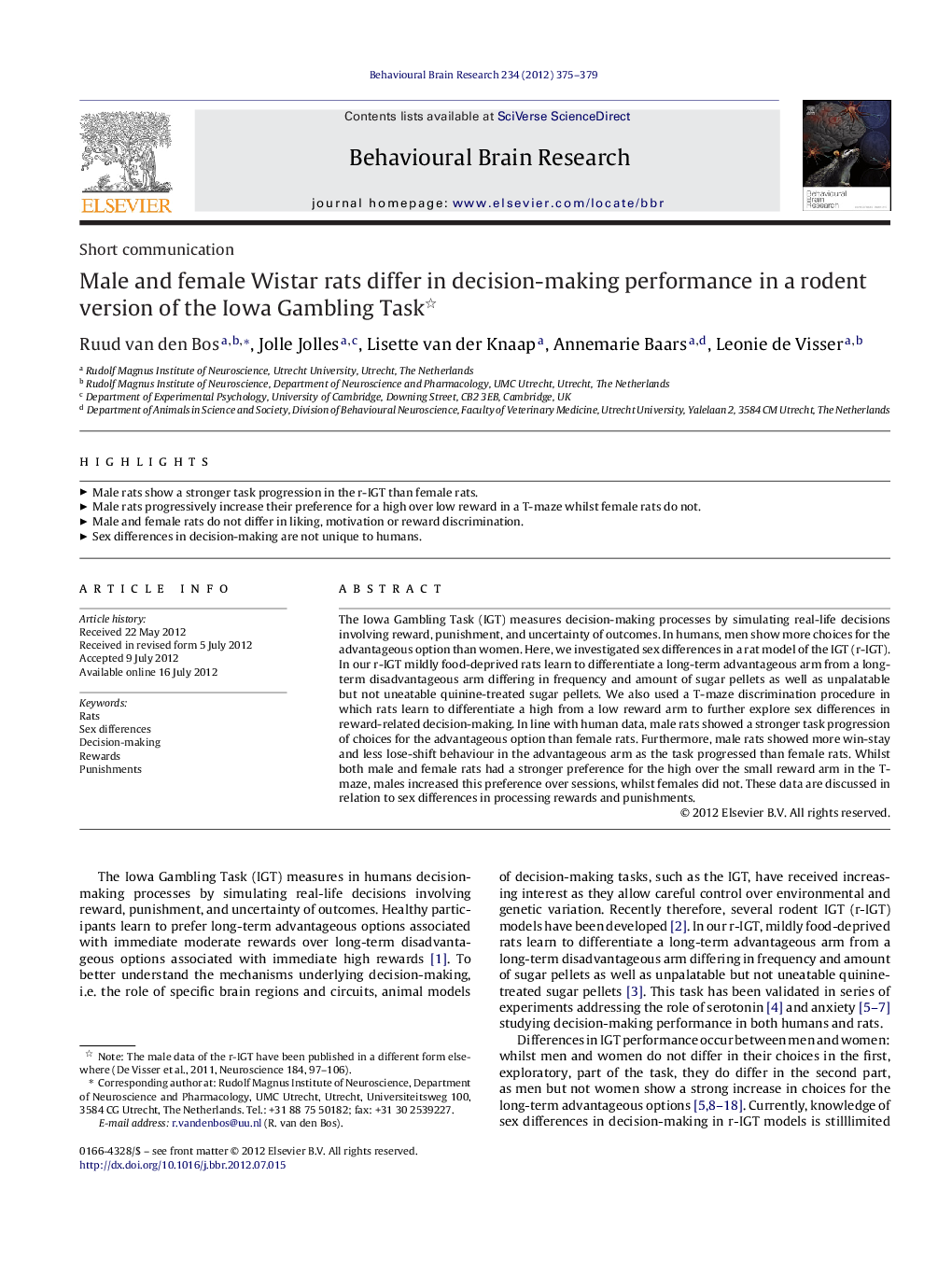| Article ID | Journal | Published Year | Pages | File Type |
|---|---|---|---|---|
| 4312970 | Behavioural Brain Research | 2012 | 5 Pages |
The Iowa Gambling Task (IGT) measures decision-making processes by simulating real-life decisions involving reward, punishment, and uncertainty of outcomes. In humans, men show more choices for the advantageous option than women. Here, we investigated sex differences in a rat model of the IGT (r-IGT). In our r-IGT mildly food-deprived rats learn to differentiate a long-term advantageous arm from a long-term disadvantageous arm differing in frequency and amount of sugar pellets as well as unpalatable but not uneatable quinine-treated sugar pellets. We also used a T-maze discrimination procedure in which rats learn to differentiate a high from a low reward arm to further explore sex differences in reward-related decision-making. In line with human data, male rats showed a stronger task progression of choices for the advantageous option than female rats. Furthermore, male rats showed more win-stay and less lose-shift behaviour in the advantageous arm as the task progressed than female rats. Whilst both male and female rats had a stronger preference for the high over the small reward arm in the T-maze, males increased this preference over sessions, whilst females did not. These data are discussed in relation to sex differences in processing rewards and punishments.
► Male rats show a stronger task progression in the r-IGT than female rats. ► Male rats progressively increase their preference for a high over low reward in a T-maze whilst female rats do not. ► Male and female rats do not differ in liking, motivation or reward discrimination. ► Sex differences in decision-making are not unique to humans.
